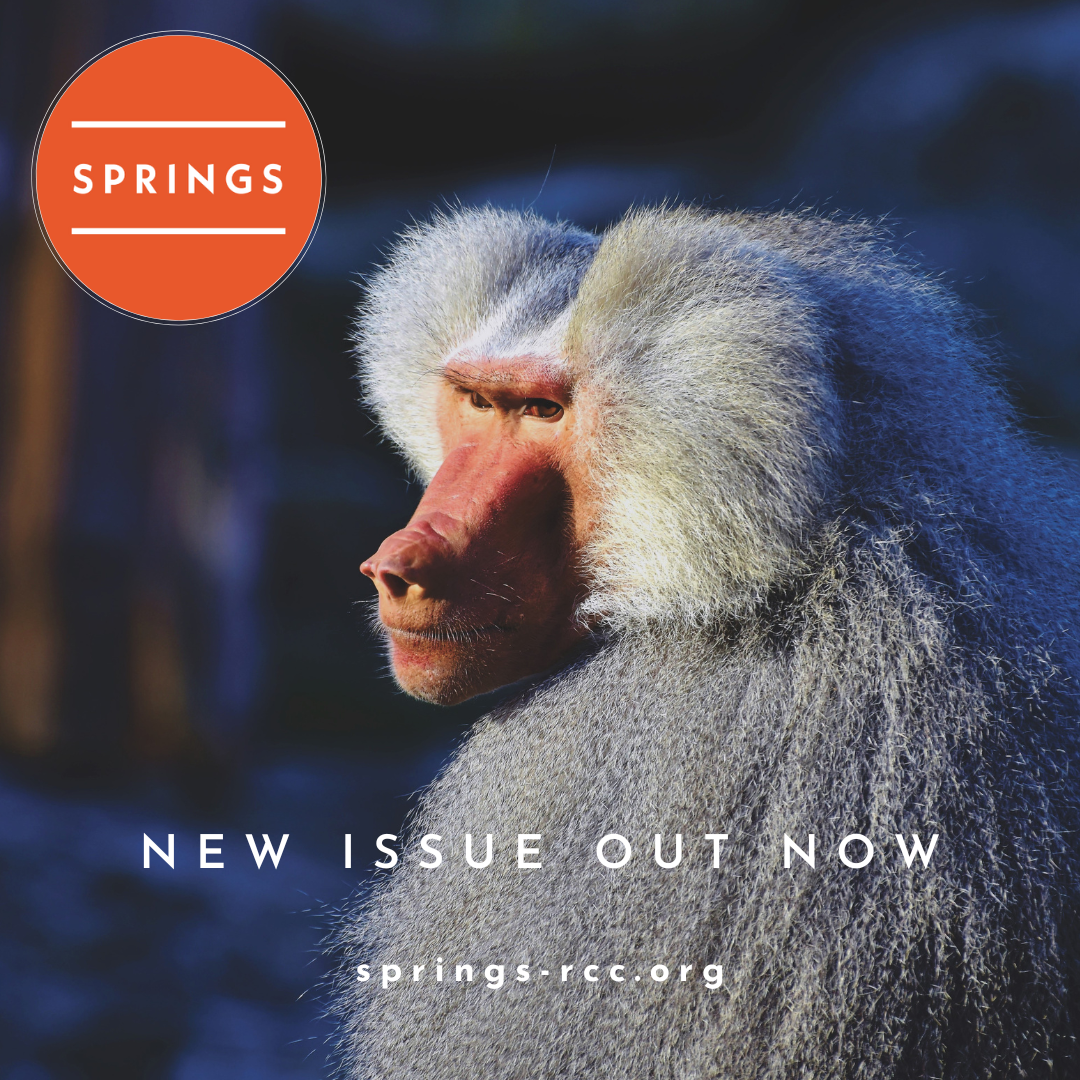Seventh Issue of Springs: The Rachel Carson Center Review
27.05.2025
We read the news about torrential rain in some distant place, separated from it by our screens. We add a grating of fresh nutmeg to our food, in ignorance of the spice’s cultural history. We walk along a riverbank and see water, little water, only to find that there used to be more. The new issue of Springs: The Rachel Carson Center Review ponders on emplacement and visibility, takes us through the centuries, and echoes an urgent call to attend to nonhuman sentience.
In “Rain, Carson, Art, Salt: A Venetian Matrix,” novelist Catherine Bush walks the streets of Venice, seeking art that engages with Rachel Carson at the Biennale Arte 2024. Haunted by an approaching storm, she asks, “How can I look, ecologically, through art, back at the world?,” and performs the artist’s “ecological labour of relationship-making.”
While Catherine Bush is caught up in a storm, human geographer Mike Hulme looks at sociotechnical developments that have changed the climate and, at the same time, the way we experience the weather. This experience, he contends, becomes increasingly detached from our local place-markers, resulting in an “Unbearable Weight” that challenges our sense of place, order, and well-being.
Writer and anthropologist Amitav Ghosh takes us to the Banda Islands to unravel “The Nutmeg’s Curse.” Narrating the violent history of the spice trade in the area and the nutmeg’s power to “decide the fate of human beings,” Ghosh advocates for the acknowledgement of “humanity’s ever-increasing servitude to the earth.”
“Walking a Sicilian River” by anthropologist Paolo Gruppuso and geographer Erika Garozzo ruminates on the life of Sicily’s largest but now disappearing river—the Simeto. On a walk in a nature reserve established to protect the river mouth, the two scholars observe the marks of twentieth-century infrastructure projects, recent “green” energy facilities, and intensive agriculture. Yet they leave us with a trace of hope when they eventually encounter “the river speaking through birds and the sound of flowing water.”
Processing the horrid February 2025 “Killing [of] a Baboon” by a group of schoolchildren in Delmas, South Africa, Sandra Swart looks back at history and examines the role of superstition and the occult in the ongoing violence against these primates. She emphasizes “the power of public outrage in triggering social change” and the weirdly unexpected potential of the popular press and social media in putting an end to intentional cruelty to animals.
In the final contribution, anthropologist and STS scholar Mascha Gugganig and cultural geographer Judith Bopp discuss “Organic Farming in Thailand” and prevailing narratives about agriculture. In their conversation, Bopp finds that many Thai farmers “describe their farming practices or their relationship to nature in a very sensitive way”—a way of seeing the world that could inspire farmers in the West to attend more to the intricate relationships between health, nutrition, and ecology.
Beyond these exciting additions, Springs continues its efforts to assemble writing from other open-access RCC publications. Our Springs archive curates articles from the online and print journal RCC Perspectives (2010–2020), the peer-reviewed online journal Arcadia: Explorations in Environmental History, and publications from RCC’s multigenre ecopedia, Seeing the Woods.


